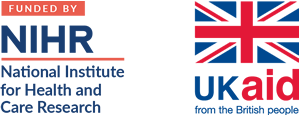Preventing and treating life-threatening perioperative maternal haemorrhage - phase 1
Background
Research Questions
Why do health systems in Africa fail to provide women at high risk of post-partum haemorrhage with evidence-based treatment? What is the provision of evidence-based care for post-partum haemorrhage across Africa? Can we co-produce a complex intervention which improves evidence-based care and survival for high-risk patients?
Background
Maternal haemorrhage is the leading cause of death during childbirth worldwide. Across Africa, haemorrhage affects one in ten women in childbirth and is estimated to cause 100,000 deaths each year. Our preliminary research shows few patients who experience post-partum haemorrhage receive evidence-based care, and evidence from across the APORG network suggests this problem is widespread.
We will explore barriers to the provision of evidence-based care for maternal haemorrhage by the multi-professional perioperative care team, then co-produce and test a complex intervention to improve care for those patients at greatest risk.
Maternal Haemorrhage
Numbers Speak For Themselves
Phase I
1. The first study will assess barriers to the delivery of healthcare and factors contributing to poor maternal outcomes in a single location (Uganda).
2. We will follow 2600 patients presenting to hospital during a six month period assess the healthcare treatment they received and any delays they may have experienced.
3. In addition to detailed data from direct observation and medical records, we will also conduct interviews linked to bleeding episodes: including patients, carers, community members and healthcare staff who were involved.
4. We hope to provide a rich analysis of what happens during patient care, how different stakeholders perceive care provision, and the challenges in providing effective care.
Progress
- We have been working on a quantitative and qualitative analysis for publication
- The first is an observational study titled “The incidence of postpartum haemorrhage amongst women delivering at a regional referral hospital in eastern Uganda: a one-year observational study”
- The second is study is titled “Cross-sectional survey to assess hospital system readiness for haemorrhage during and after caesarean section in Africa”
- We have submitted our quantitative study to the International Journal of Obstetric Anaesthesia (IJOA)

